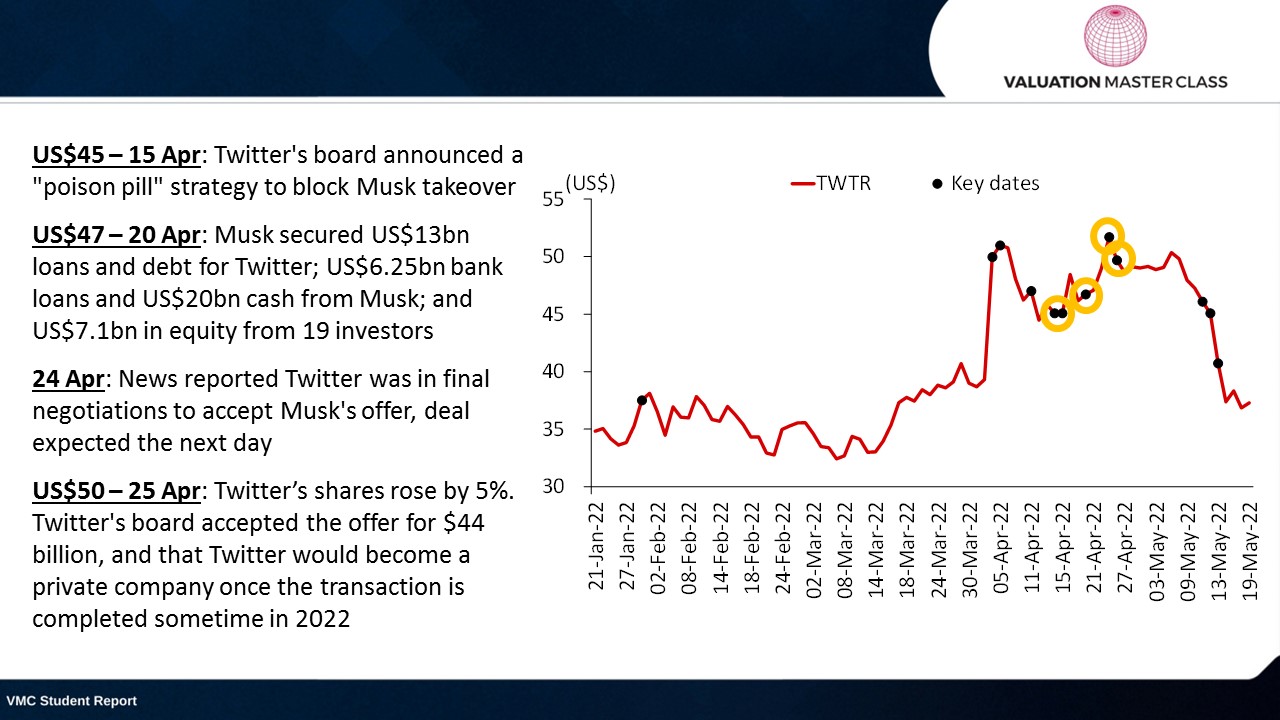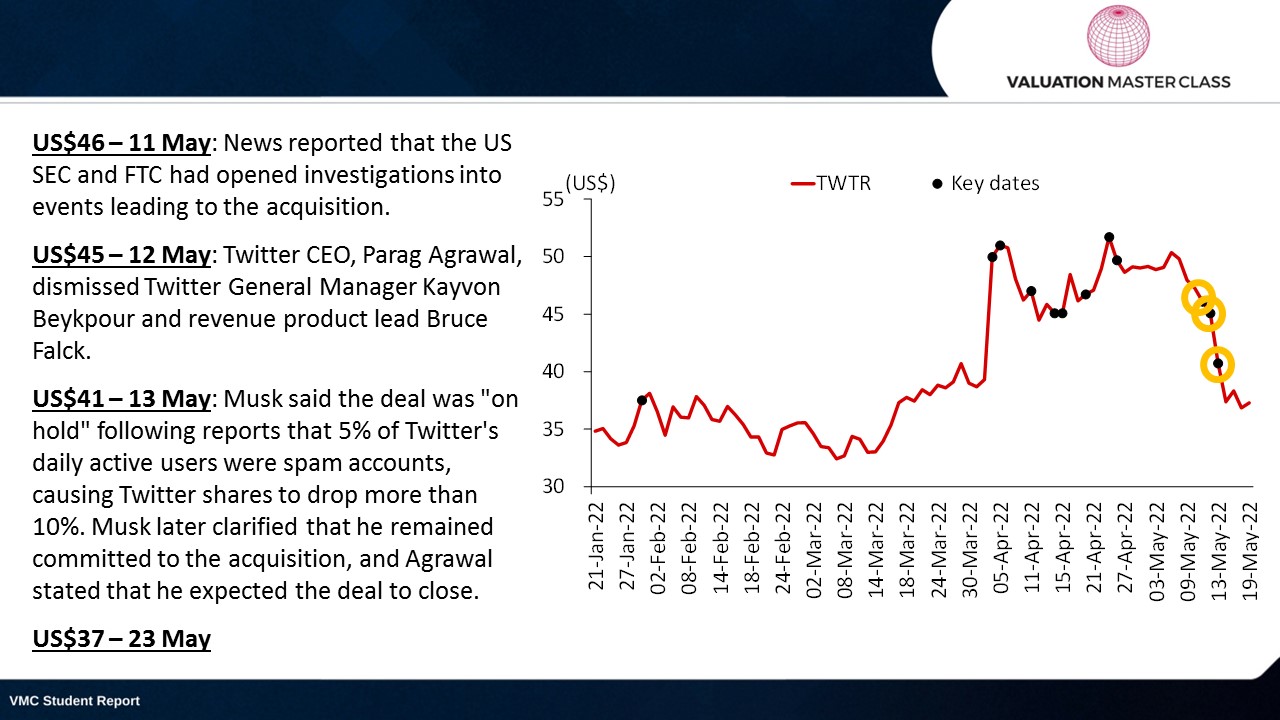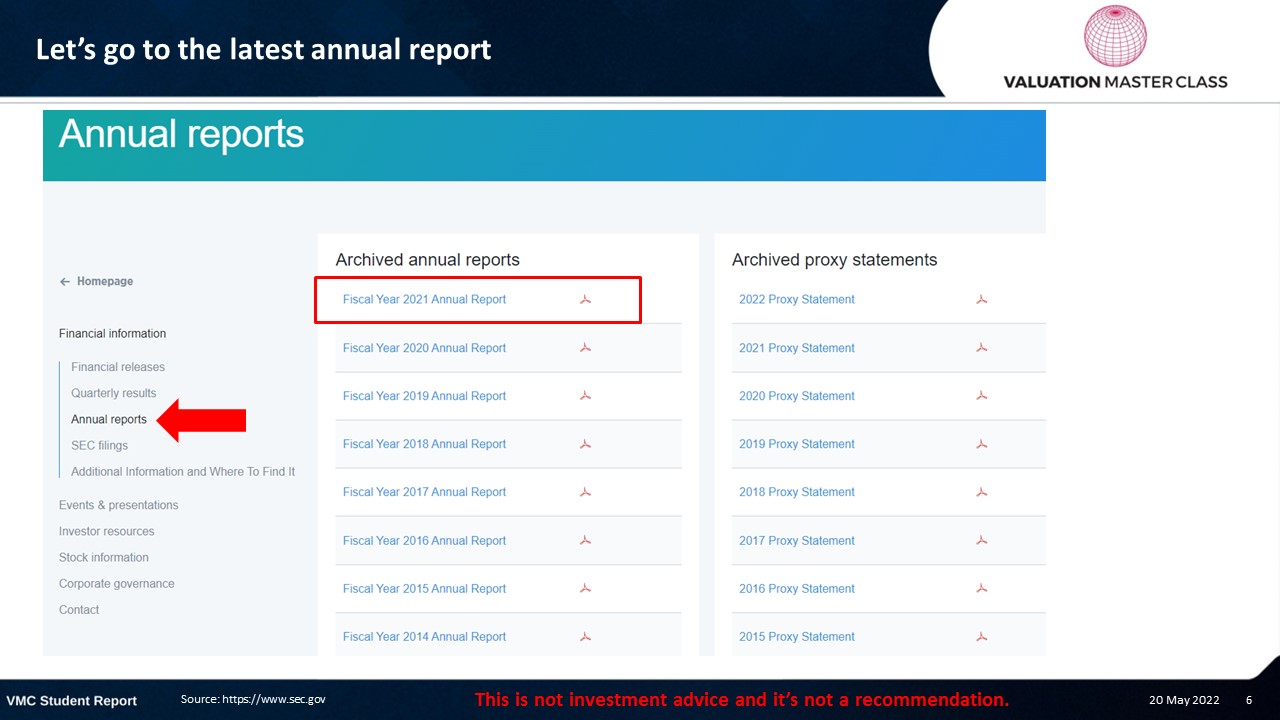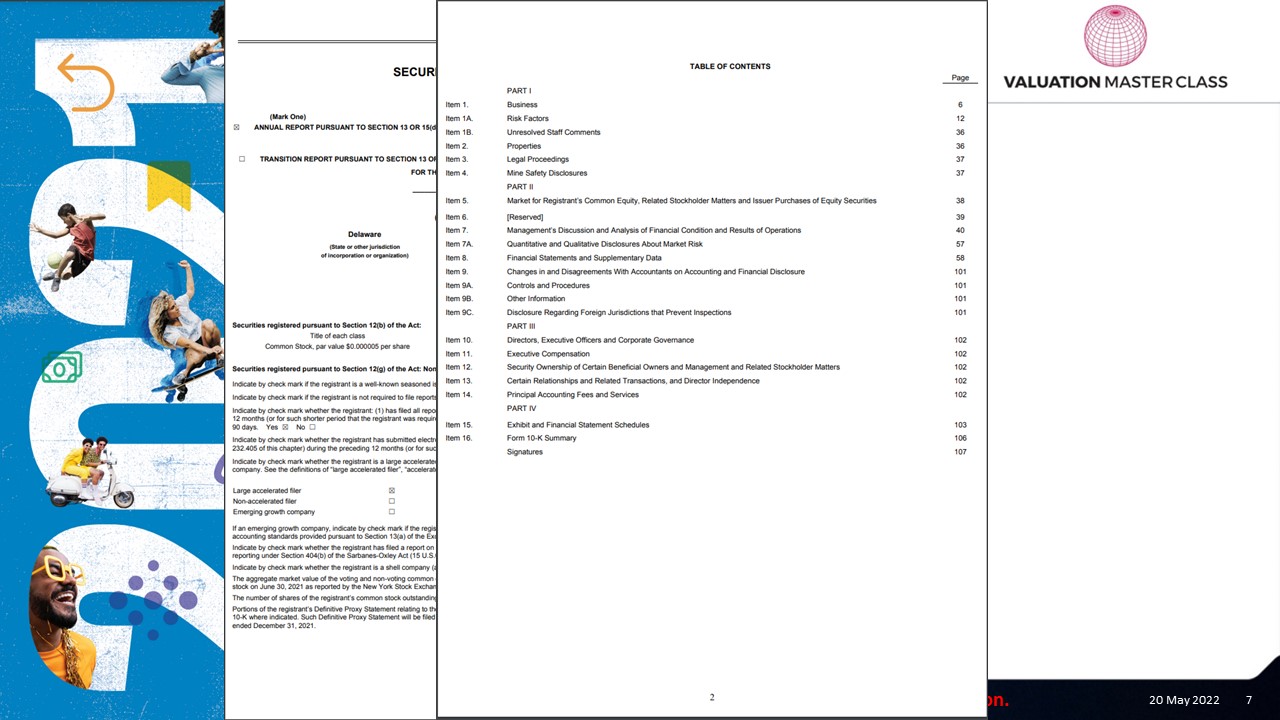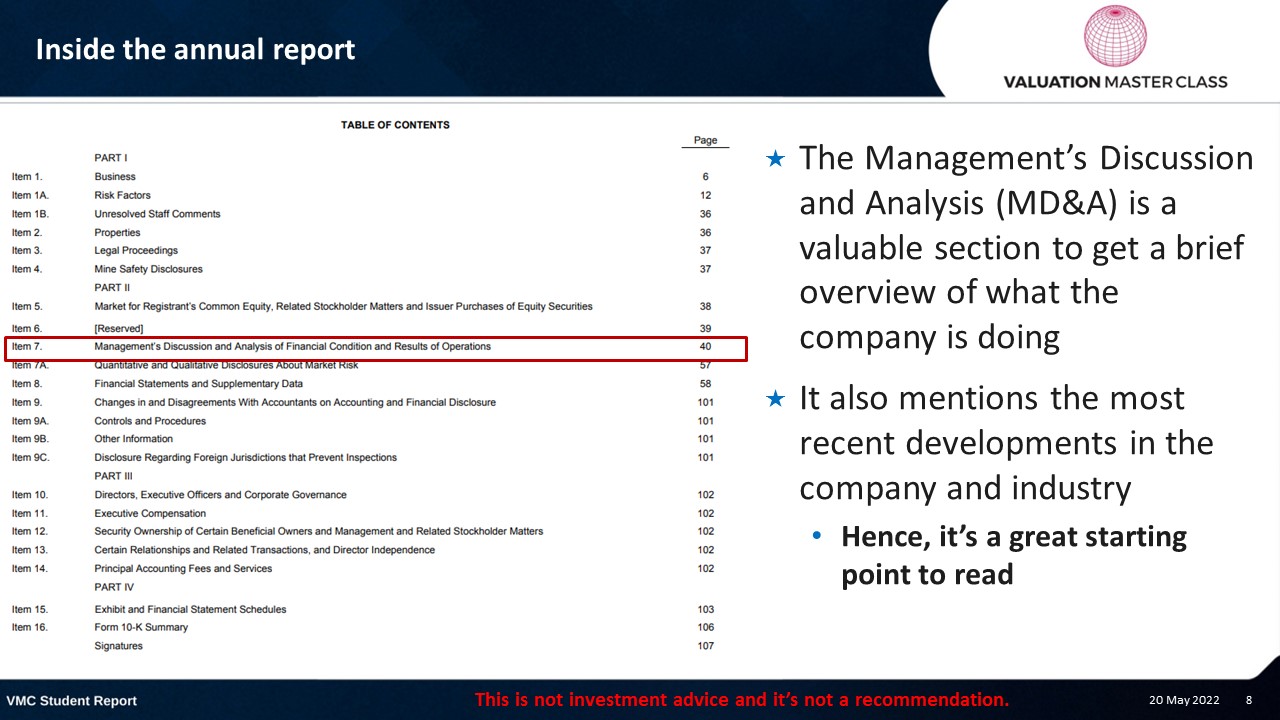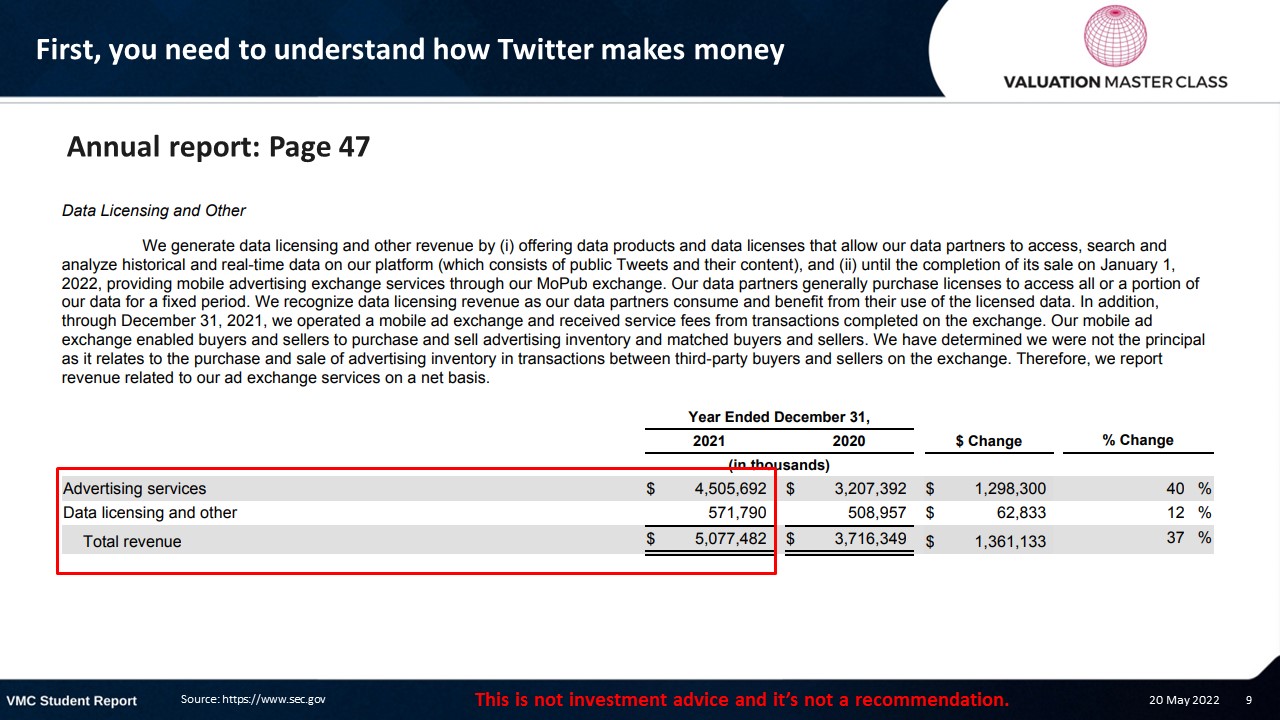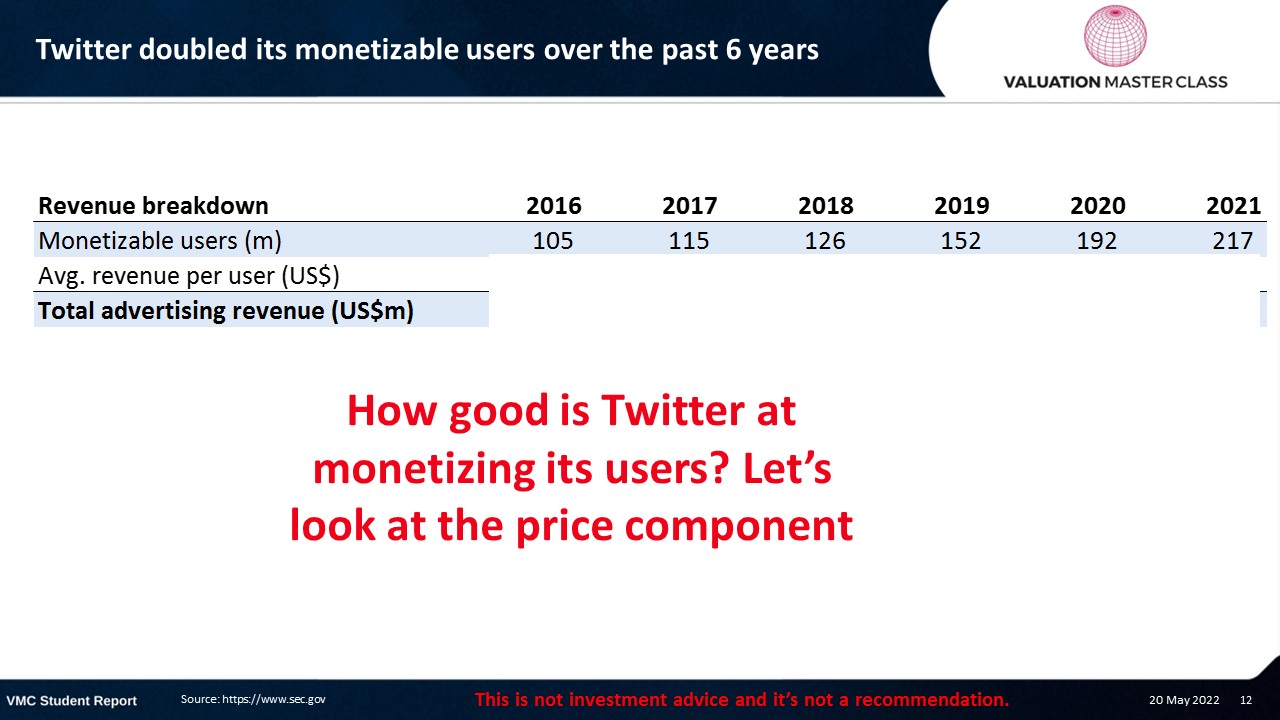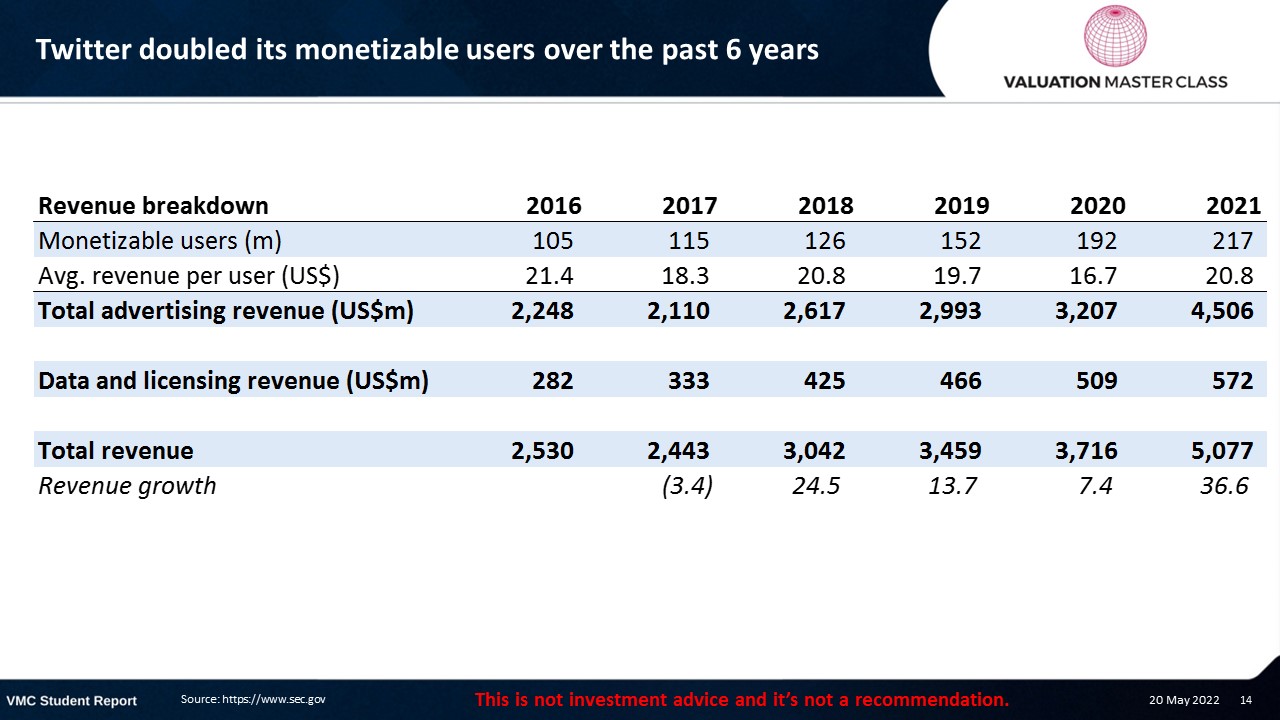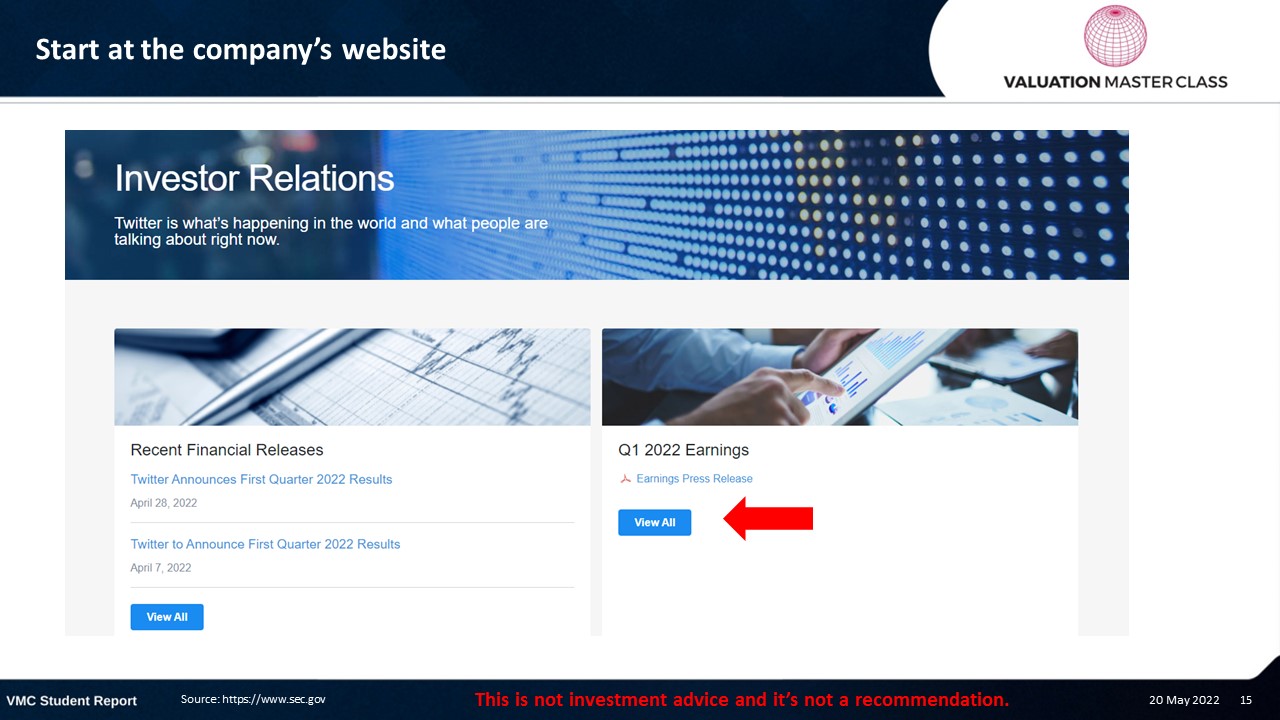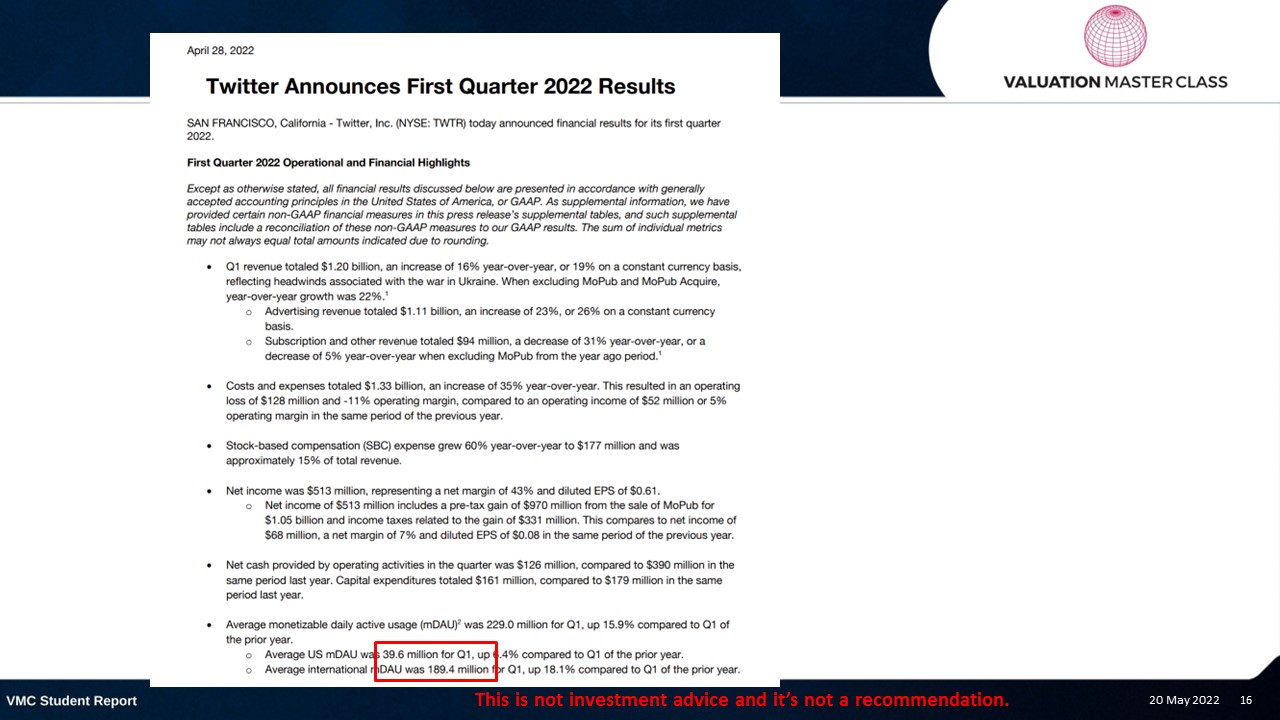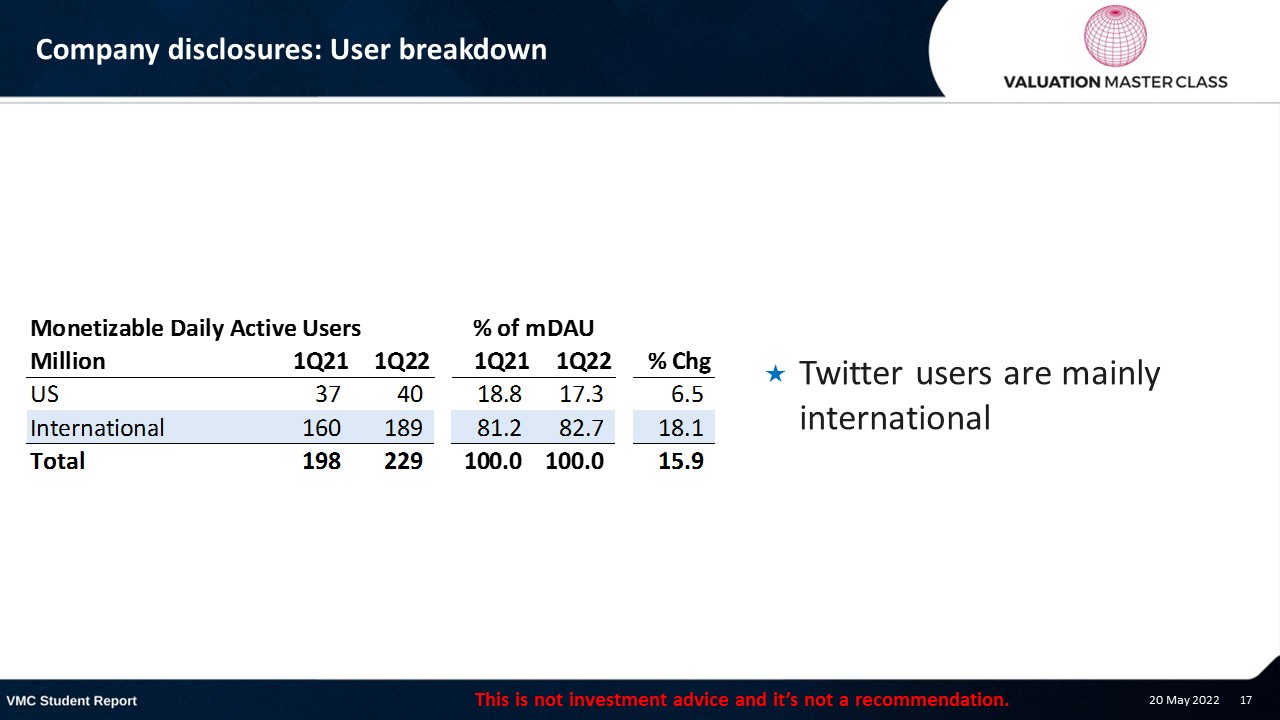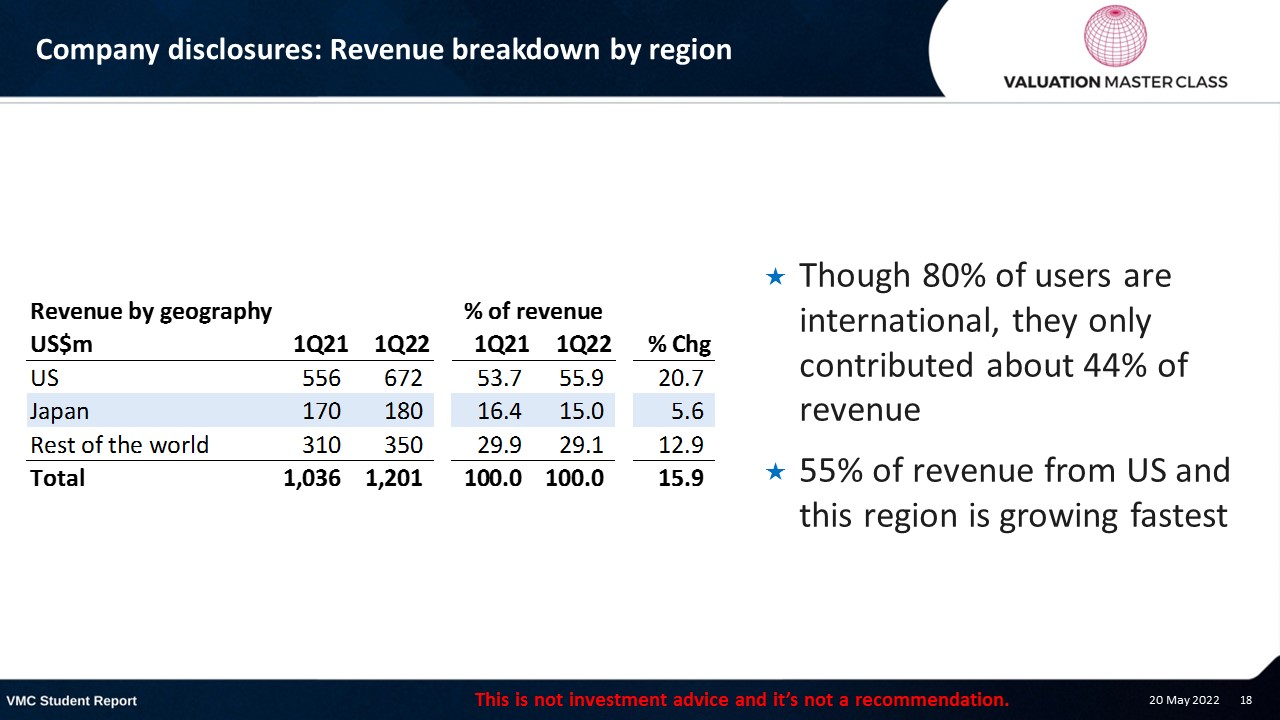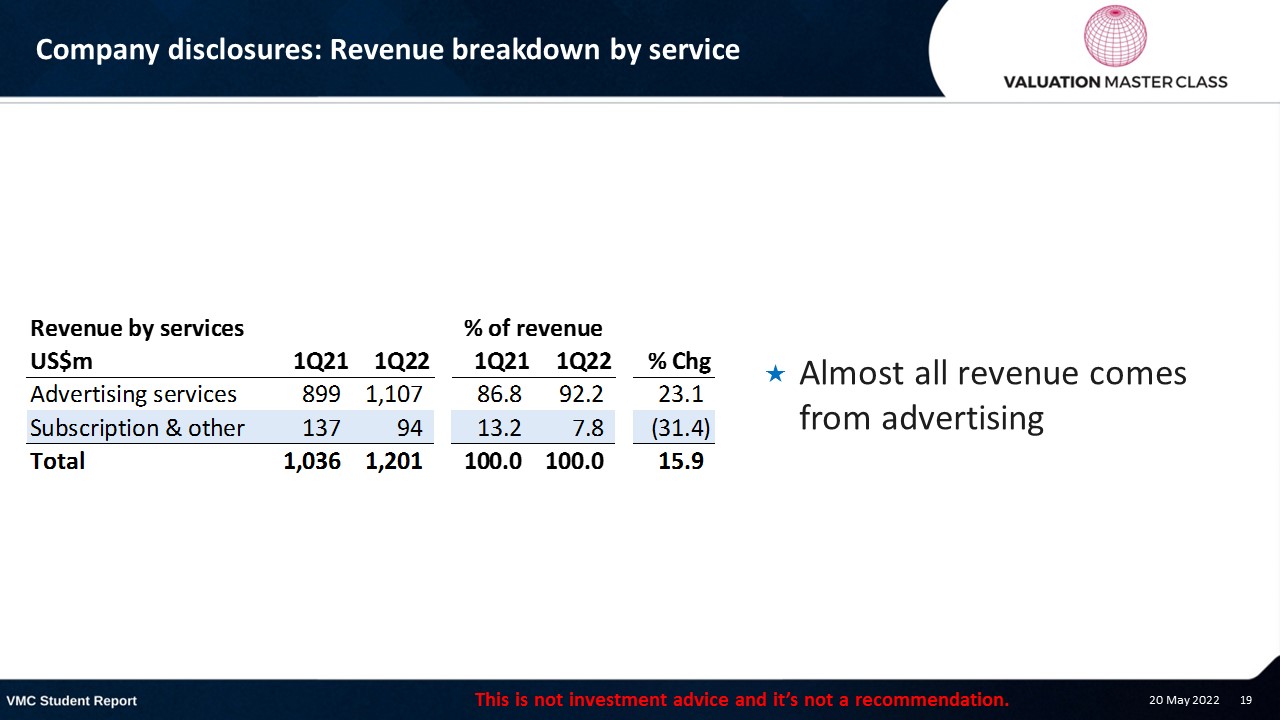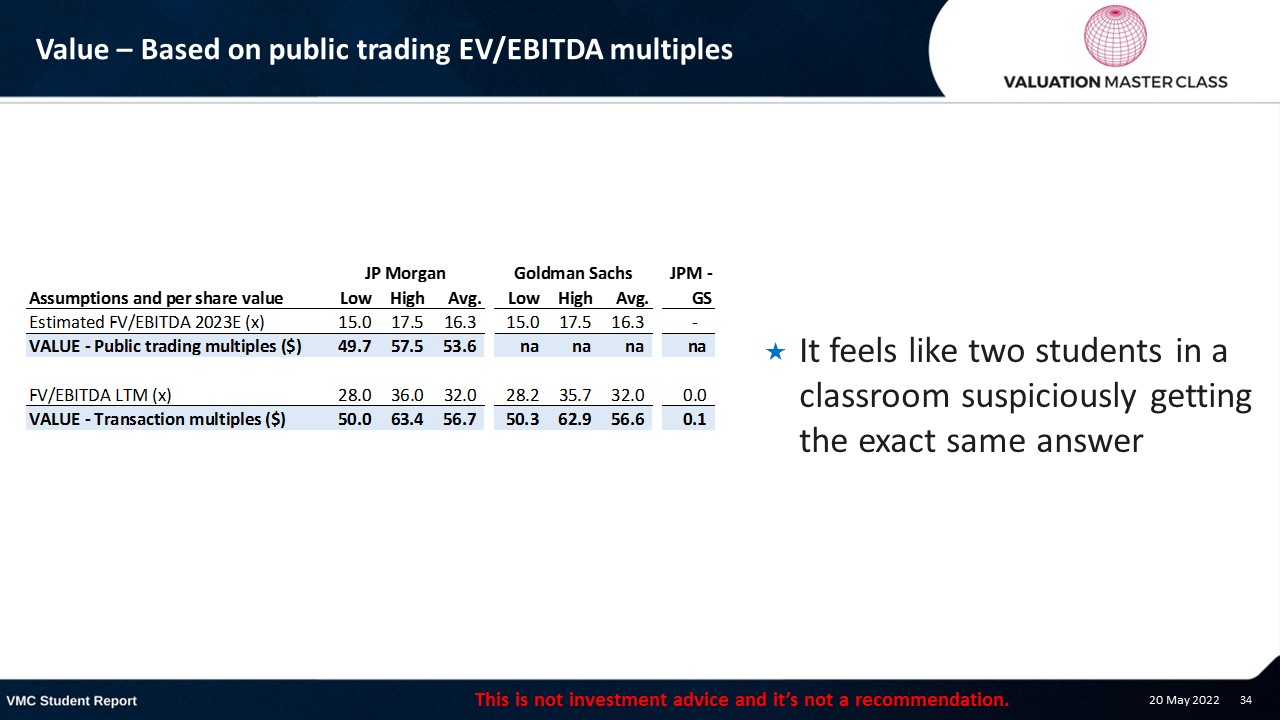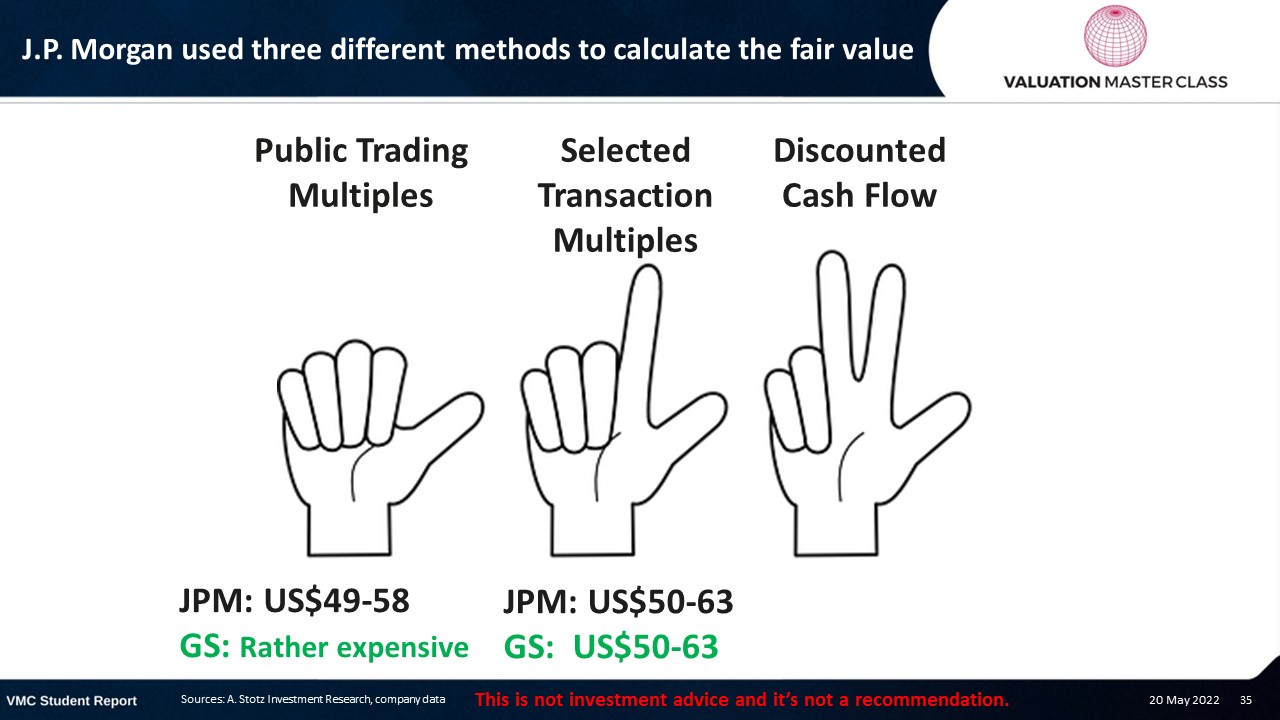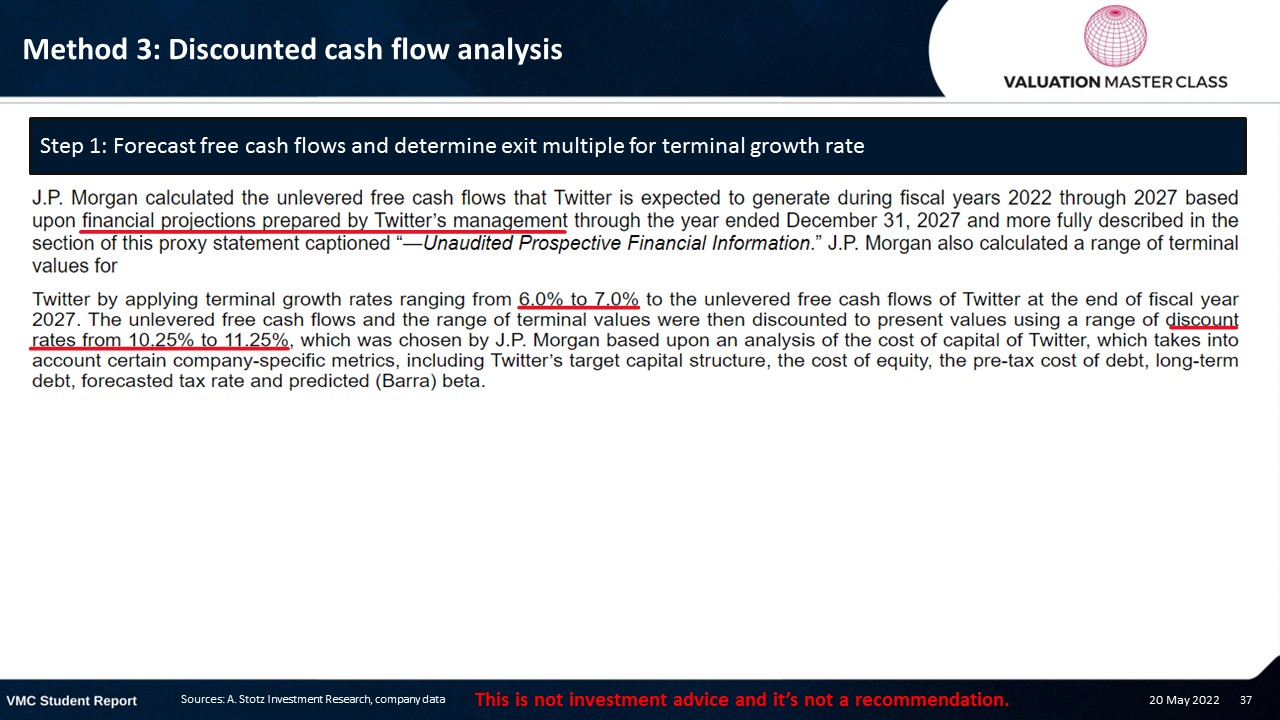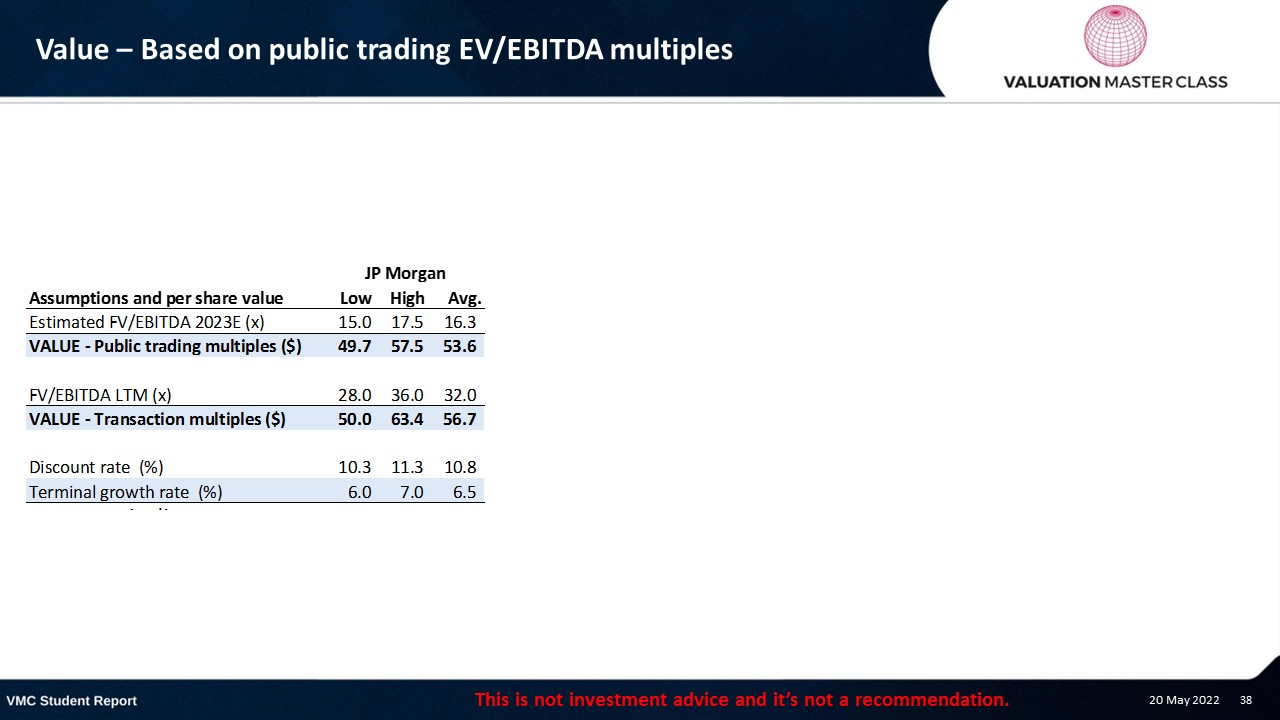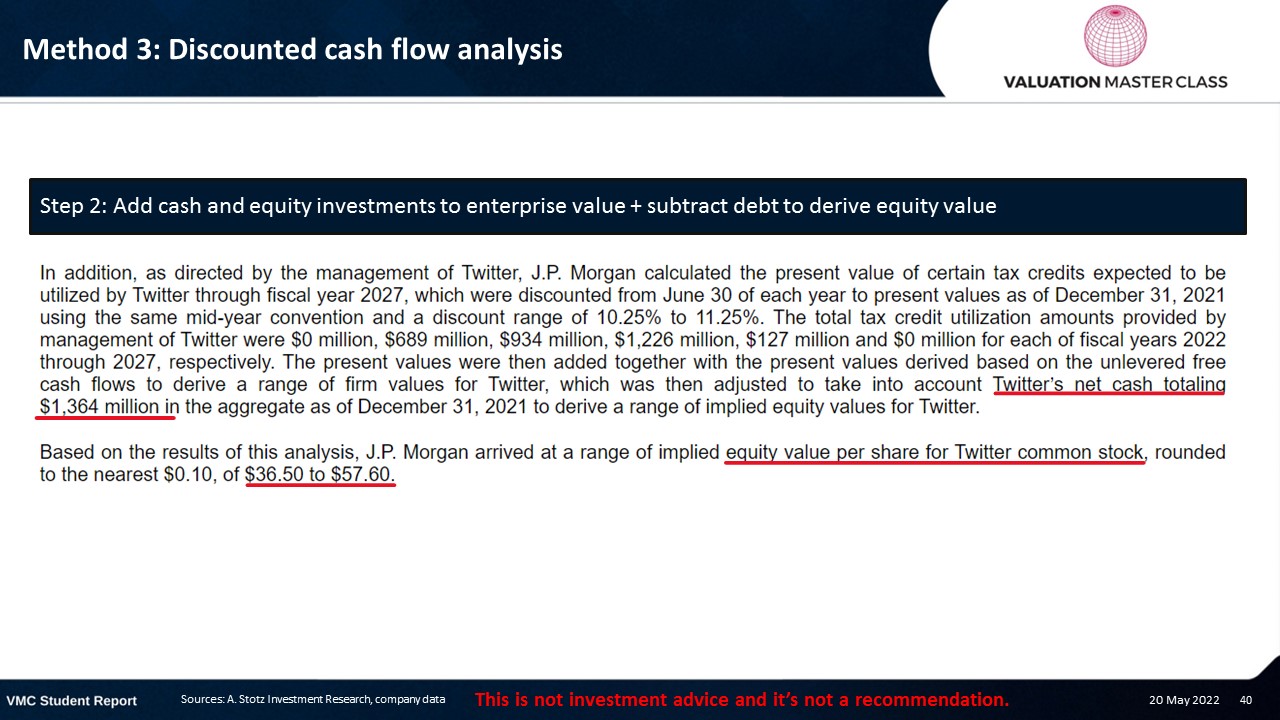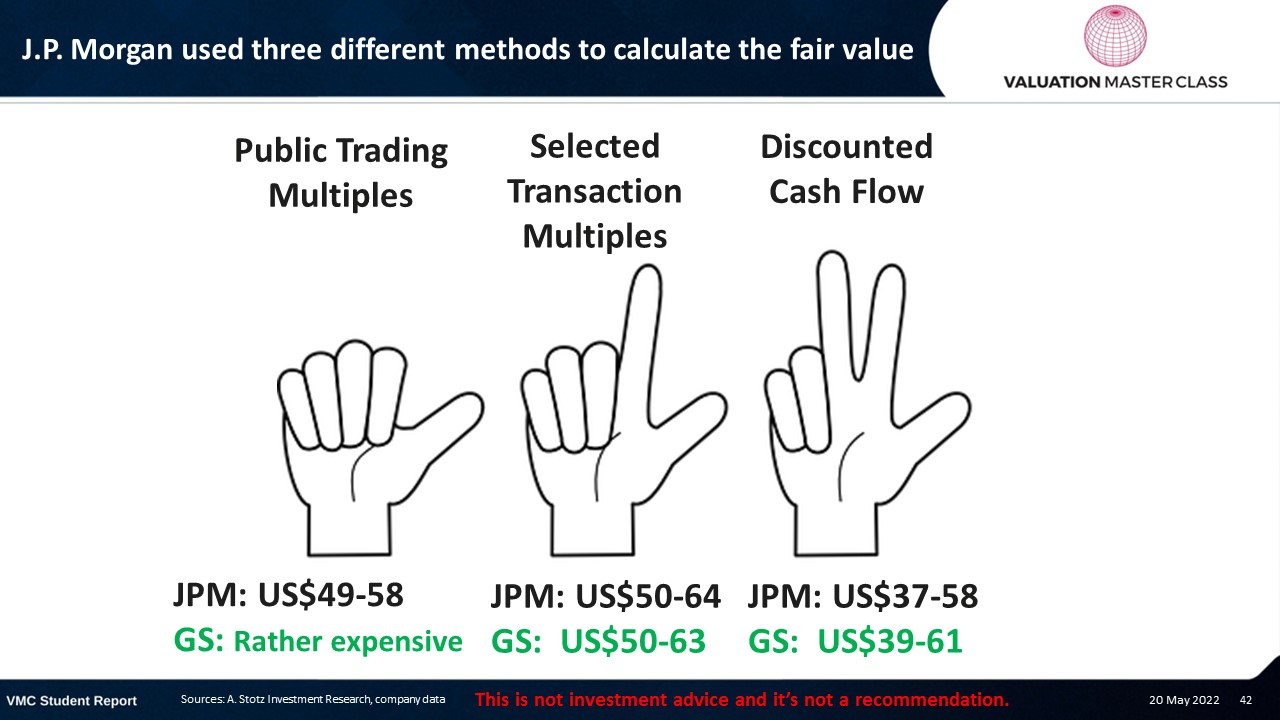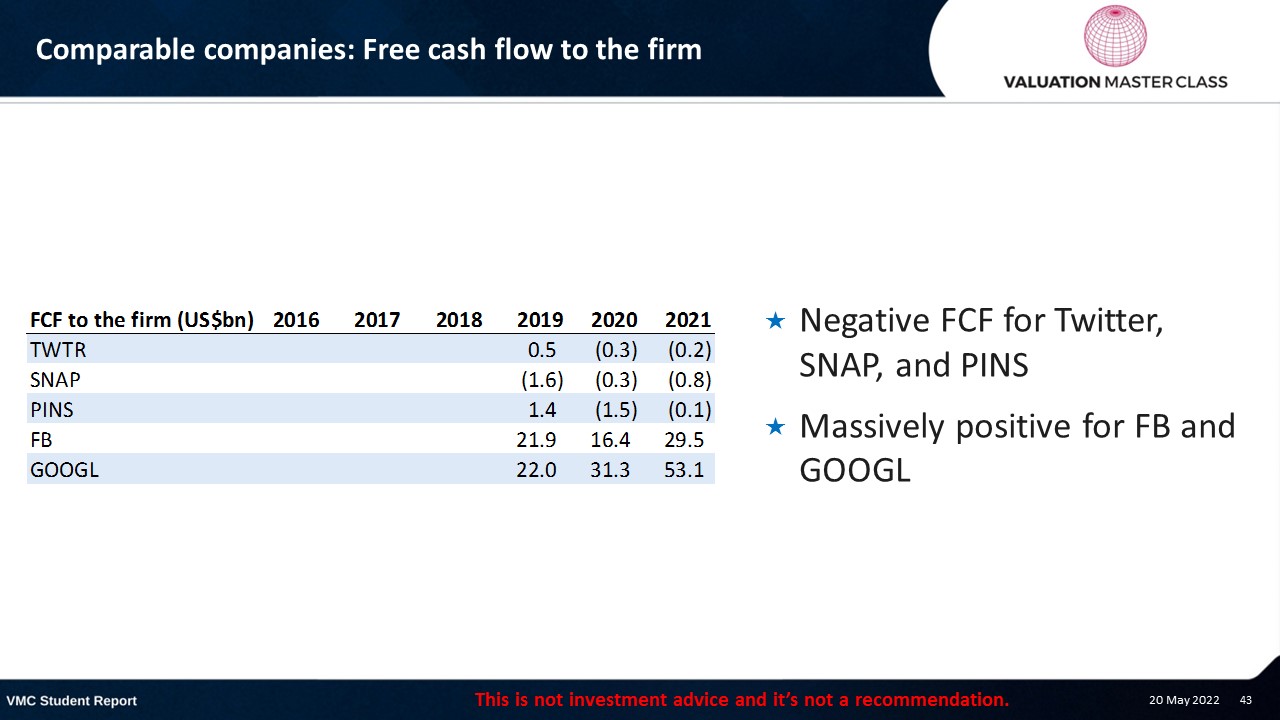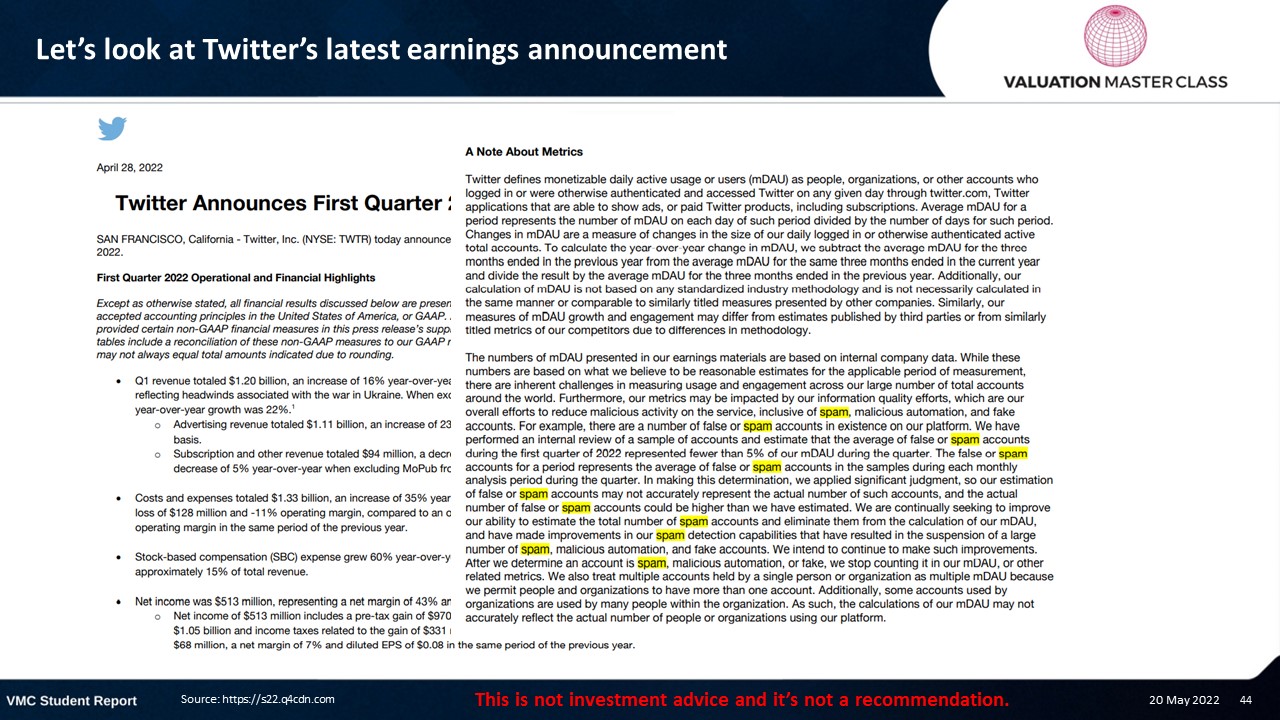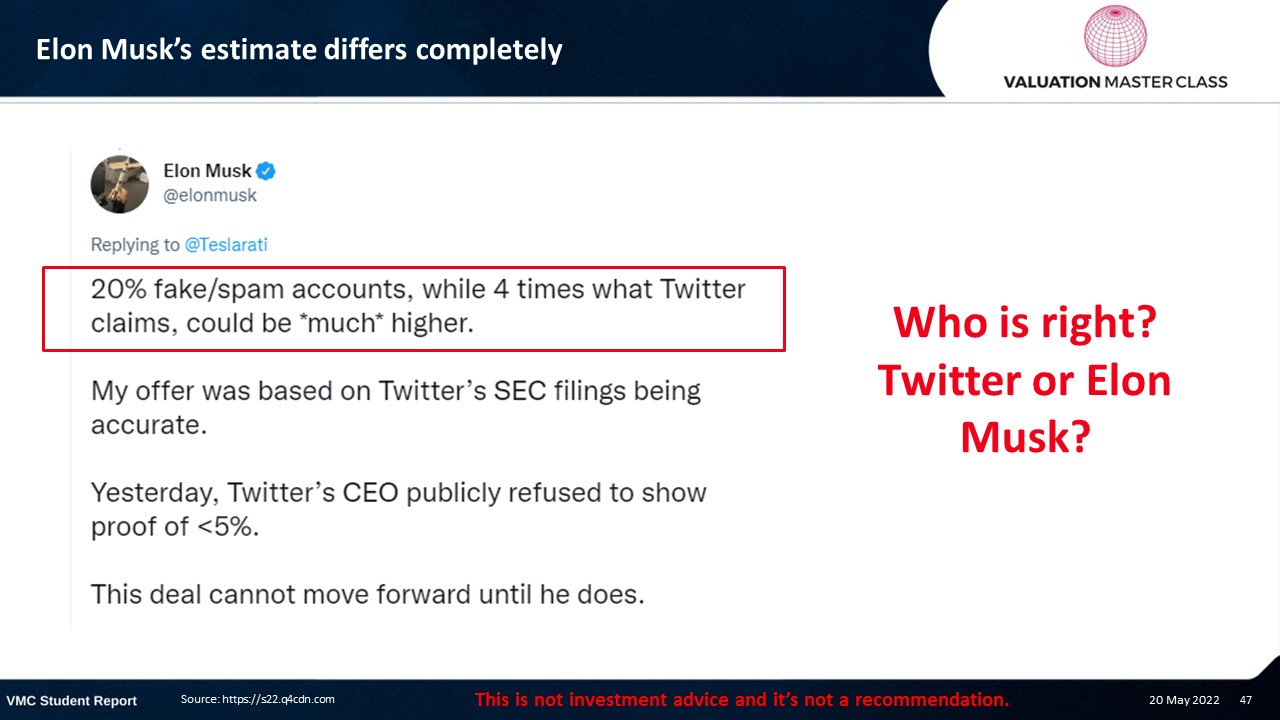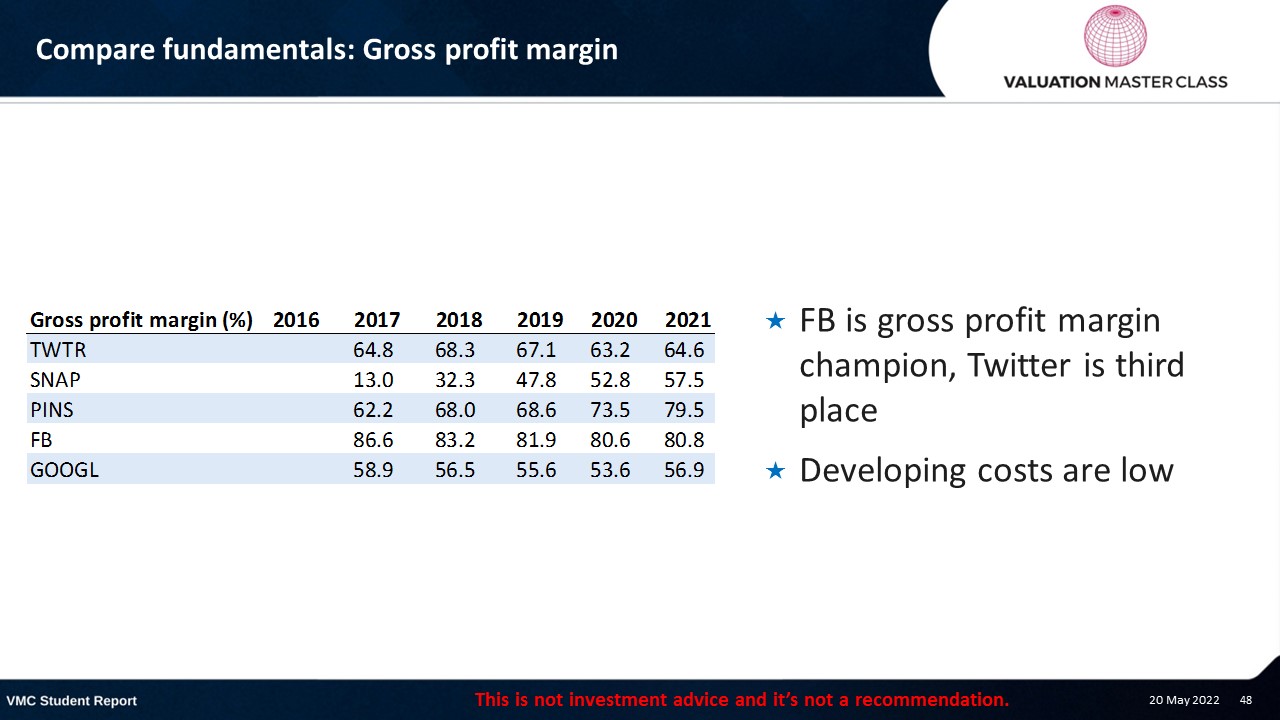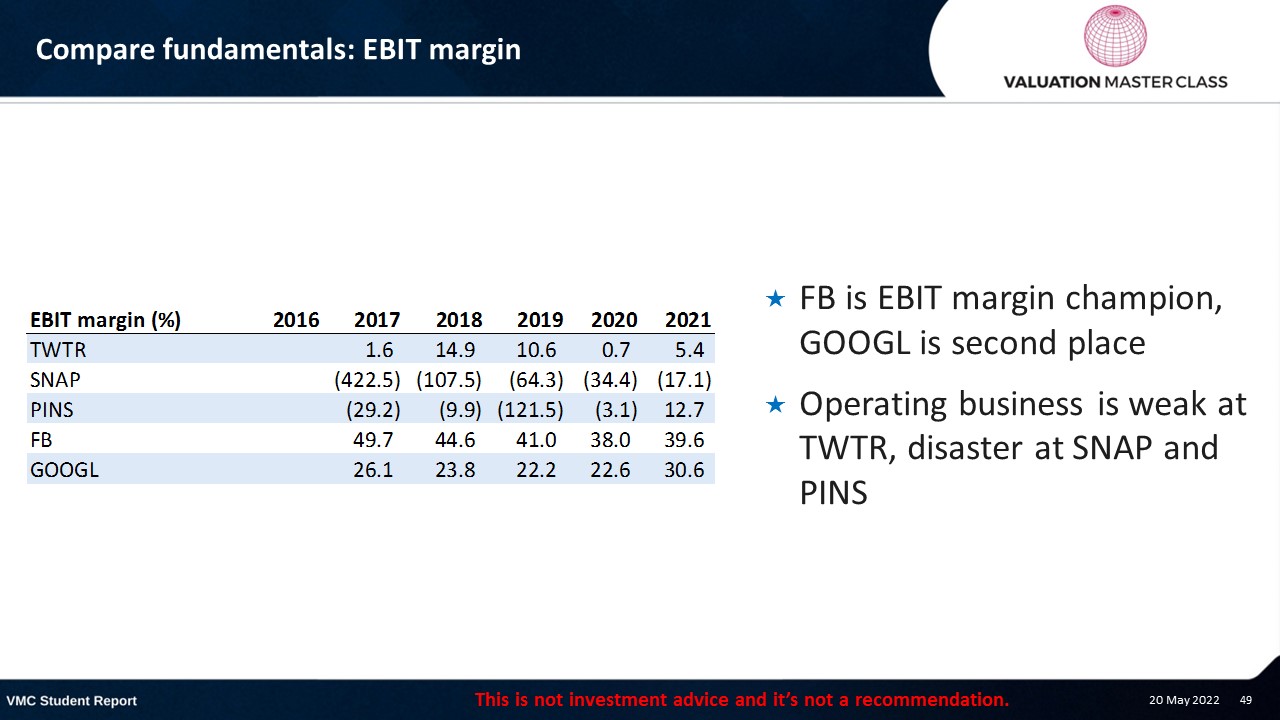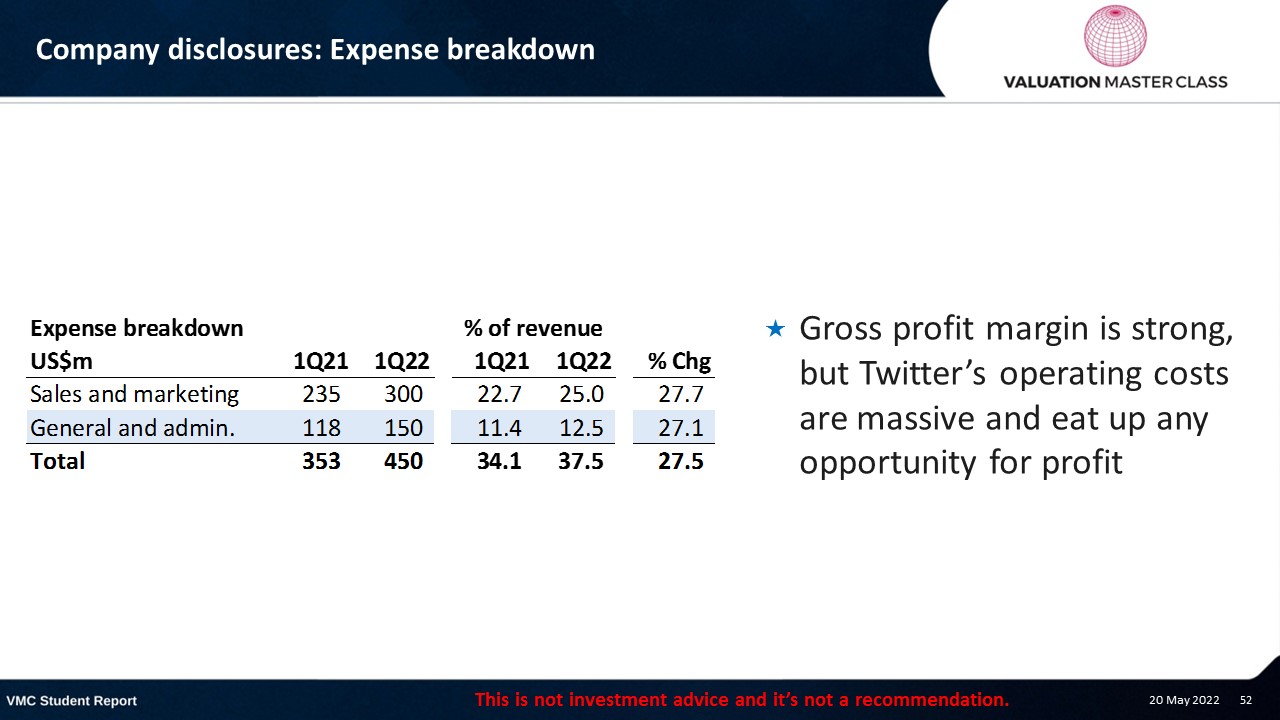Let’s Help Elon Musk Take a Deep Dive into Twitter’s Valuation
The post was originally published here.
What’s interesting about Twitter is that it makes a better toy for Elon than an investment
Download the full report as a PDF
Let’s go to the latest annual report
Inside the annual report
- The Management’s Discussion and Analysis (MD&A) is a valuable section to get a brief overview of what the company is doing
- It also mentions the most recent developments in the company and industry
- Hence, it’s a great starting point to read
First, you need to understand how Twitter makes money
Let’s do a revenue breakdown of Twitter together
Main driver of Twitter’s revenue is quantity
Twitter doubled its monetizable users over the past 6 years
Twitter had difficulties getting more money out of its users
Twitter doubled its monetizable users over the past 6 years
Start at the company’s website
Company disclosures: User breakdown
- Twitter users are mainly international
Company disclosures: Revenue breakdown by region
- Though 80% of users are international, they only contributed about 44% of revenue
- 55% of revenue from US and this region is growing fastest
Company disclosures: Revenue breakdown by service
- Almost all revenue comes from advertising
Twitter’s Schedule 14A from SEC.GOV
J.P. Morgan opinion on Twitter
J.P. Morgan used three different methods to calculate the fair value
Method 1: Public Trading Multiples
How comparable are they?
Value – Based on public trading EV/EBITDA multiples
J.P. Morgan used three different methods to calculate the fair value
Comparable companies: Three have no EBIT
- The operating business is tough
Method 2: Selected Transaction Multiples
Value – Based on public trading EV/EBITDA multiples
- It feels like two students in a classroom suspiciously getting the exact same answer
J.P. Morgan used three different methods to calculate the fair value
Comparable companies: Three are loss making
- 2018/9 Twitter made money
- 2018 US$0.845bn Inc. tax benefit (Release of valuation allowance from Brazil)
- 2019 Income tax benefit of US$1.2bn – Establishment of deferred tax assets from intra-entity transfer of intangible assets
Method 3: Discounted cash flow analysis
Value – Based on public trading EV/EBITDA multiples
Method 3: Discounted cash flow analysis
Value – Based on public trading EV/EBITDA multiples
J.P. Morgan used three different methods to calculate the fair value
Comparable companies: Free cash flow to the firm
- Negative FCF for Twitter, SNAP, and PINS
- Massively positive for FB and GOOGL
Let’s look at Twitter’s latest earnings announcement
False or spam accounts discussion from 1Q22 release
- “(…) there are a number of false or spam accounts in existence on our platform
- “We have performed an internal review of a sample of accounts and estimate that the average of false or spam accounts during the first quarter of 2022 represented fewer than 5% of our mDAU during the quarter.”
- “In making this determination, we applied significant judgment, so our estimation of false or spam accounts may not accurately represent the actual number of such accounts, and the actual number of false or spam accounts could be higher than we have estimated.”
Elon Musk’s estimate differs completely
Compare fundamentals: Gross profit margin
- FB is gross profit margin champion, Twitter is third place
- Developing costs are low
Compare fundamentals: EBIT margin
- FB is EBIT margin champion, GOOGL is second place
- Operating business is weak at TWTR, disaster at SNAP and PINS
Compare fundamentals: Net margin
- SNAP has never made a profit, Twitter only in 2018 and 2019 because of tax adjustments
- FB and GOOGL are killing it
Compare fundamentals: Free cash flow to the firm
- SNAP is bleeding
- Twitter’s return to investors has been tiny
- FB and GOOGL are massive value generators
Company disclosures: Expense breakdown
- Gross profit margin is strong, but Twitter’s operating costs are massive and eat up any opportunity for profit
Download the full report as a PDF
DISCLAIMER: This content is for information purposes only. It is not intended to be investment advice. Readers should not consider statements made by the author(s) as formal recommendations and should consult their financial advisor before making any investment decisions. While the information provided is believed to be accurate, it may include errors or inaccuracies. The author(s) cannot be held liable for any actions taken as a result of reading this article.


